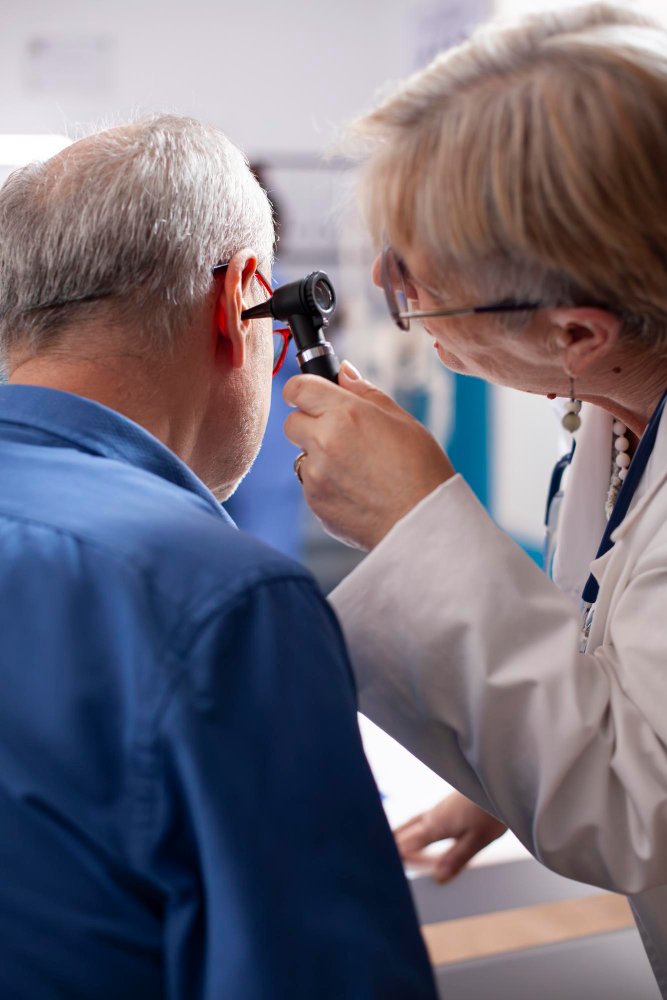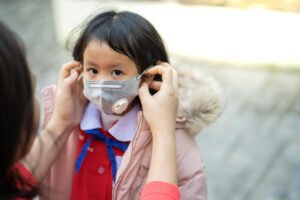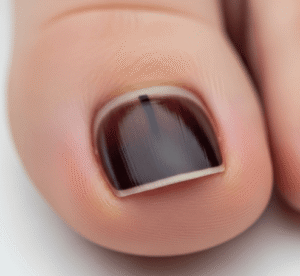Overview
Airplane ear, also known as ear barotrauma, occurs when there is a pressure imbalance between the middle ear and the surrounding environment, commonly during air travel. It often causes discomfort, pain, or temporary hearing loss, especially during takeoff and landing when air pressure changes rapidly. Though usually mild and self-resolving, severe or repeated episodes may lead to complications.
What is Airplane Ear?
Airplane ear is a condition caused by unequal air pressure on either side of the eardrum, typically affecting individuals during altitude changes. The Eustachian tube, which connects the middle ear to the back of the throat, normally equalizes pressure. When it fails to function properly due to rapid pressure changes, fluid buildup, or blockage, the result is discomfort or pain in the ear.
Symptoms
Symptoms of airplane ear can range from mild to severe and may affect one or both ears:
- Ear pain or discomfort
- A feeling of fullness or pressure in the ear
- Muffled hearing or slight hearing loss
- Ringing in the ear (tinnitus)
- Dizziness or lightheadedness
- In severe cases: eardrum rupture or bleeding from the ear
Children and infants may cry or tug at their ears due to the discomfort.
Causes
The most common cause is rapid change in altitude, especially during:
- Airplane takeoff or landing
- Driving in mountainous areas
- Scuba diving
- Traveling in high-speed elevators
Underlying conditions that block the Eustachian tube can increase susceptibility:
- Nasal congestion from cold or allergies
- Sinus infection
- Ear infections
- Enlarged adenoids (in children)
Risk Factors
- Flying with a cold, flu, or sinus infection
- Allergic rhinitis
- Small or underdeveloped Eustachian tubes (common in children)
- Frequent air travel
- Recent ear surgery or injury
- Smoking (affects Eustachian tube function)
Complications
While most cases resolve without treatment, untreated or severe airplane ear can result in:
- Middle ear infections
- Eardrum rupture
- Hearing loss (temporary or permanent)
- Chronic ear barotrauma
- Balance issues or vertigo
Prevention
Several strategies can help prevent or minimize airplane ear:
- Yawning, swallowing, or chewing gum during ascent and descent
- Use of filtered earplugs (e.g., EarPlanes®) to slow pressure changes
- Avoid flying when sick with upper respiratory infections
- Take decongestants or antihistamines before flying (as advised by a doctor)
- Use nasal sprays to reduce congestion
- Stay awake during descent to actively equalize pressure
For infants, feeding during takeoff and landing may help.
Treatment Options Korea
1. Self-Care Measures During Flight
- Yawning, swallowing, or chewing gum during takeoff and landing
- Valsalva maneuver (gently blowing with nose pinched) to equalize pressure
- Use of filtered earplugs (e.g., EarPlanes) to regulate air pressure flow
2. Nasal Decongestants and Antihistamines
- Nasal sprays (e.g., oxymetazoline) or oral decongestants (e.g., pseudoephedrine)
- Taken 30–60 minutes before flight to reduce nasal congestion
- Antihistamines helpful if symptoms are related to allergies
3. Pain Relief and Observation
- Mild discomfort usually resolves on its own within hours to a few days
- Use of acetaminophen or ibuprofen for ear pain or headache
4. Medical Treatment for Persistent Symptoms
- Visit ENT (ear, nose, and throat) clinics if:
- Pain persists more than a few days
- Hearing loss, dizziness, or ear discharge occurs
- Doctors may prescribe oral steroids or stronger decongestants
5. Myringotomy (Rare Cases)
- A small surgical hole in the eardrum to release pressure
- Considered if barotrauma causes severe fluid buildup or eardrum rupture
- Performed in Korean ENT clinics or hospitals with day surgery facilities
6. Preventive Care for Frequent Flyers
May include use of pressure-equalizing tubes for people with chronic issues.
Custom travel advice from ENT specialists













